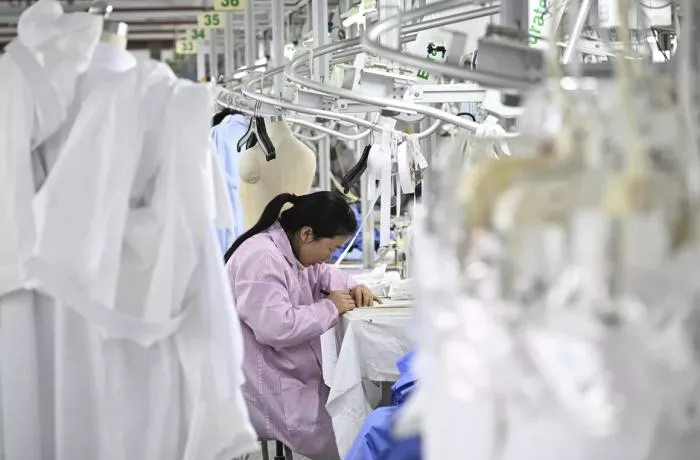President Donald Trump’s escalating trade war is set to hit American closets hard—with budget-friendly staples like $5 T-shirts, $10 sock packs, and $25 sneakers facing the steepest price hikes, experts warn.
The apparel industry, heavily reliant on imports, is bracing for major disruptions. A staggering 98% of clothing sold in the U.S. is imported, with China alone supplying 22% of the market. New tariffs—including a 10% baseline levy on most countries and a 145% duty on Chinese goods—will force retailers to raise prices, particularly on everyday essentials.
Why Basics Will Be Hit Hardest
“Low-margin necessities like cotton T-shirts, underwear, and socks will see faster, steeper increases because demand stays constant regardless of price,” said Sheng Lu, a professor of fashion and apparel studies at the University of Delaware. Unlike seasonal items, basics require frequent restocking, exposing importers to tariffs more often.
The U.S. lacks domestic alternatives for mass-produced, low-cost apparel, leaving shoppers vulnerable. A Yale Budget Lab analysis predicts clothing prices could surge 65% and footwear 87% within a year, with long-term increases of 25% and 29%, respectively.
Luxury vs. Budget: An Uneven Burden
While all apparel will cost more, mass-market items will bear the brunt. “Cheaper goods have thinner profit margins, leaving retailers less room to absorb tariff costs,” said Edward Gresser of the Progressive Policy Institute.
Luxury brands, meanwhile, are better insulated. High-end products like Italian leather bags and Swiss watches face smaller hikes, as much of their production occurs in Europe. Hermès, for instance, will raise prices to “fully offset” tariffs—a move affordable brands can’t replicate.
Low-Income Shoppers at Risk
The tariff fallout will disproportionately hurt budget-conscious households. According to Trade Partnership Worldwide, the poorest Americans spend three times more of their income on clothing than the wealthiest.
Adding to the strain, the upcoming end of the $800 “de minimis” tax exemption—a lifeline for cheap imports from Chinese e-commerce giants like Shein and Temu—will hit lower-income communities hardest. A UCLA-Yale study found 48% of tax-exempt packages go to the poorest ZIP codes, versus just 22% to the richest.
“Tariffs function like a regressive tax,” said Margaret Bishop of Parsons School of Design. “Those who can least afford it will pay the most.”
The Bottom Line
With no quick fixes in sight, Americans should prepare for pricier wardrobes—and a farewell to the era of the $5 T-shirt.
Related topics:

